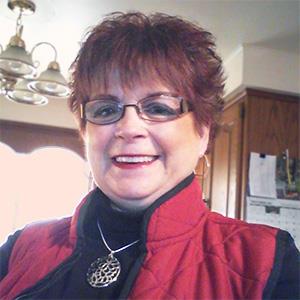Finding a job in a sluggish economy can be brutal, and often, employers have lofty expectations of their pools of applicants. Students looking to secure a job need to find unique ways to stand out from the crowd in order to compete. Green Bay, Wis., graduate Peggy Sonneson found the right mix of education and extracurricular work to land her dream job in her field.

Here is how Sonneson went from years of retail work to successfully launching a career in healthcare management.
Past influences education
Sonneson’s career path is much different from most looking to start a career in healthcare. She spent most of her life working in retail, and still holds a part-time position as a department manager at Target. Her retail career was satisfying and it kept her interested for quite a while, but caring for an ailing husband and a son who suffers from spina bifida, was what led her to the healthcare field.
The idea of assisting those who help patients directly appealed to Sonneson, as she knew nursing wasn’t for her but still wanted to get into the field after spending so much time helping care for her family.
She got her feet wet in the healthcare field by taking part-time classes at Northeast Wisconsin Technical College, where she eventually earned associate degrees in health information technology as well as healthcare business. Sonneson spent some time searching for jobs in the field, but found that most of the positions that appealed to her required a bachelor’s degree. So, in 2010, after the passing of her husband, she made a decision to return to school to earn a bachelor’s degree.
Her biggest motivation was a mixture of personal achievement and potential career stability.
“I really wanted to prove to myself that I could do it,” Sonneson says. “Plus healthcare isn’t going anywhere—there’s always going to be a need for people in the field.”
A visit to Rasmussen College’s Green Bay campus quickly cemented her decision to return. Sonneson says the combination of smaller class sizes, location and personal support appealed to her, so after meeting with her program coordinator she decided to enroll.
Building experience
Returning to school is typically an intimidating experience for older students, but Sonneson’s prior college experience and passion for learning made for a smooth transition. Sonneson says the staff at Rasmussen College also helped ease her transition with their positivity and willingness to help.
“Everyone welcomed me with open arms,” she says.
Her family also provided support as she adjusted to the challenges of returning to school. Sonneson’s older sister graduated from college and worked in human resources at a Green Bay area hospital so she often served as a sounding board for Sonneson’s questions and concerns.
“I could call [my sister] and she’d remind me that I could do it and I just needed to hang in there when I struggled,” Sonneson says.
Sonneson developed her support network beyond her family when she became good friends with a classmate while forming a collegiate DECA group. DECA is a nationwide organization that helps develop leadership skills in business students by applying academic work to real world situations.
Sonneson says she and her DECA co-founder are like sisters now, which added to her experience in several ways.
“I found it to be a very rewarding experience,” Sonneson says. “I met a lot of great friends, was able to network, and I think it just made me a better person.”
Her efforts in DECA were literally rewarded in the form of taking second place in a national competition held in Anaheim, Calif. The competition required Sonneson and a randomly chosen group of attendees to spend three days creating a survey and drawing up recommendations to increase sales and profitability for a retail store. Once finished, the group was required to present its findings to a panel of judges—many of whom were clearly impressed with their ideas.
Managing a hospital or clinic isn’t the same as managing a retail store, but Sonneson says the leadership skills and friendships she developed while in DECA were invaluable.
Landing the job
Sonneson completed her bachelor’s degree in the fall of 2013 but, before beginning a career in healthcare management, she had to clear one final hurdle—the hiring process. Her confidence was high upon graduating school, as she had worked with her career service advisor to polish her resume and perfect her interviewing skills.
Sonneson had a stroke of luck while searching open positions at local hospitals—she found a position that was a near perfect match for her skill set and applied. Her application was a resounding success and she was contacted the next day to set up an interview.
The luck didn’t stop there; while talking with her interviewers she learned that two of them were also Rasmussen College graduates.
“After hearing they were Rasmussen students interviewing me I felt like I was going to be a shoe-in,” Sonneson laughs. “But they said they were really impressed with my resume and my experience at DECA.”
The Rasmussen College connection with her interviewers may not have been the deciding factor, but it certainly didn’t hurt—Sonneson got the job and is now in training as a health information management site coordinator at St. Mary’s Hospital Medical Center in Green Bay.
Looking to make a change?
Returning to school later in life doesn’t have to be intimidating. Rasmussen College’s Support+ team was created to help new students make a smooth transition back, no matter how long ago they last stepped foot in a classroom. If your career has stagnated don’t waste any more time—take another step professionally and earn your business degree.




